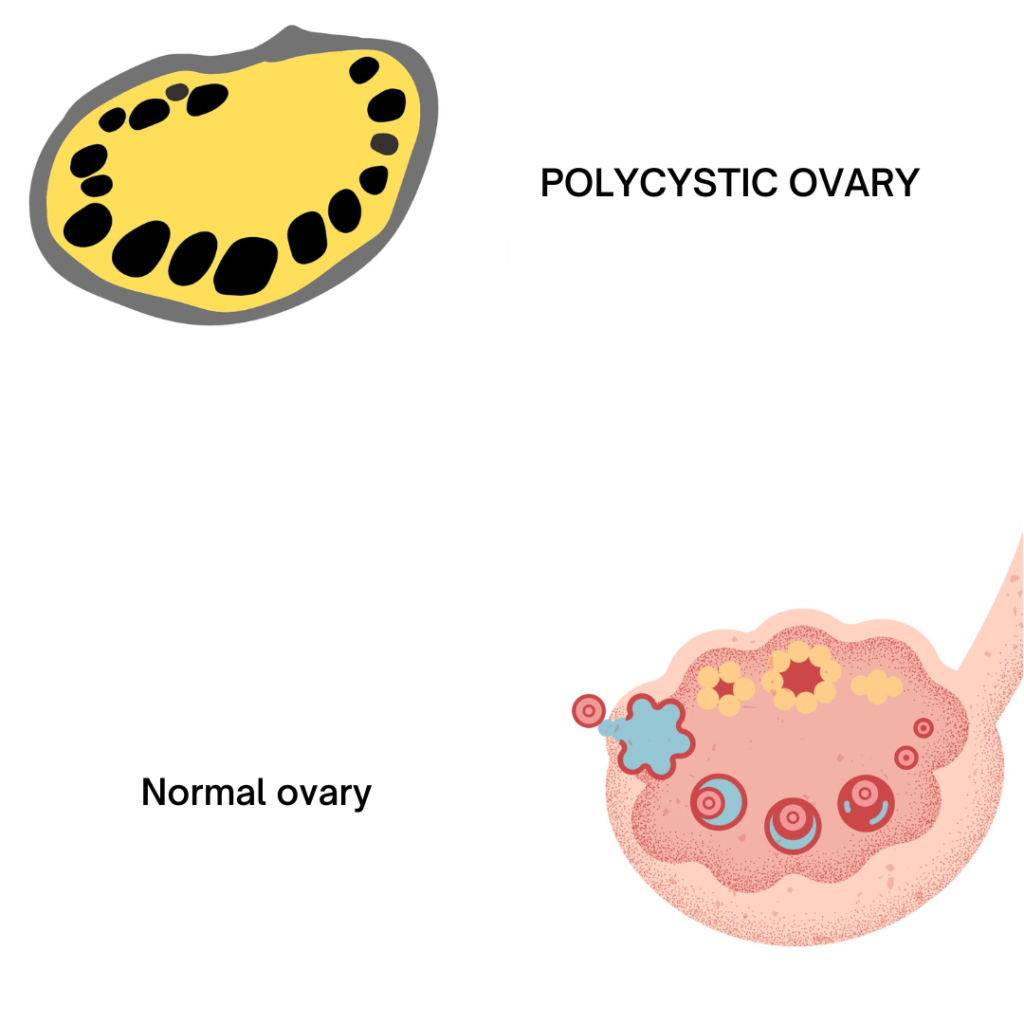PCOS is defined as a hormonal disorder causing enlarged ovaries with small cysts on the outer edges. The exact cause of PCOS is unknown, but it involves a combination of genetic and environmental factors. It is characterized by at least two of the following three criteria:
1. Irregular Menstrual Cycles: This is often the most noticeable symptom. Women with PCOS may have fewer than nine periods a year, more than 35 days between periods, and abnormally heavy periods.
– Dr. G. A. Ramaraju DNB PhD, Consultant Krishna IVF Clinic
2. Hyperandrogenism: Elevated levels of male hormones may result in physical signs such as excess facial and body hair (hirsutism), severe acne, and male-pattern baldness.
3. Polycystic Ovaries: Enlarged ovaries containing numerous small follicles that surround the eggs.
Epidemiology of PCOS
PCOS affects about 6% to 12% of women of reproductive age, making it one of the most common hormonal endocrine disorders in women. However, the prevalence can vary depending on the population studied and the diagnostic criteria used.

Risk Factors
Several factors increase the risk of developing PCOS, including:
– Genetics: A family history of PCOS, particularly in immediate relatives, elevates the risk.
– Insulin Resistance: Many women with PCOS have insulin resistance, leading to elevated insulin levels which may increase the production of androgens.
– Obesity: Excess weight exacerbates insulin resistance and the symptoms of PCOS.
Diagnosis of PCOS
Diagnosing PCOS can be challenging, as its symptoms mimic those of other conditions. The Rotterdam criteria are commonly used for diagnosis and require two of the three main features mentioned above. Additionally, doctors may conduct:
– Physical Exam: Checking for signs of excess hair growth, insulin resistance, and acne.
– Blood Tests: Assessing hormone levels to rule out other causes of menstrual abnormalities or androgen excess.
– Ultrasound: Visualizing the ovaries and the thickness of the lining of the uterus.
Conclusion
PCOS is a complex disorder with a variety of symptoms and long-term health implications, such as infertility, metabolic syndrome, type 2 diabetes, and heart disease. Understanding its definition, epidemiology, and diagnosis is crucial for early intervention and management. If you suspect you might have PCOS, consult with a healthcare professional for a thorough evaluation and appropriate treatment.
